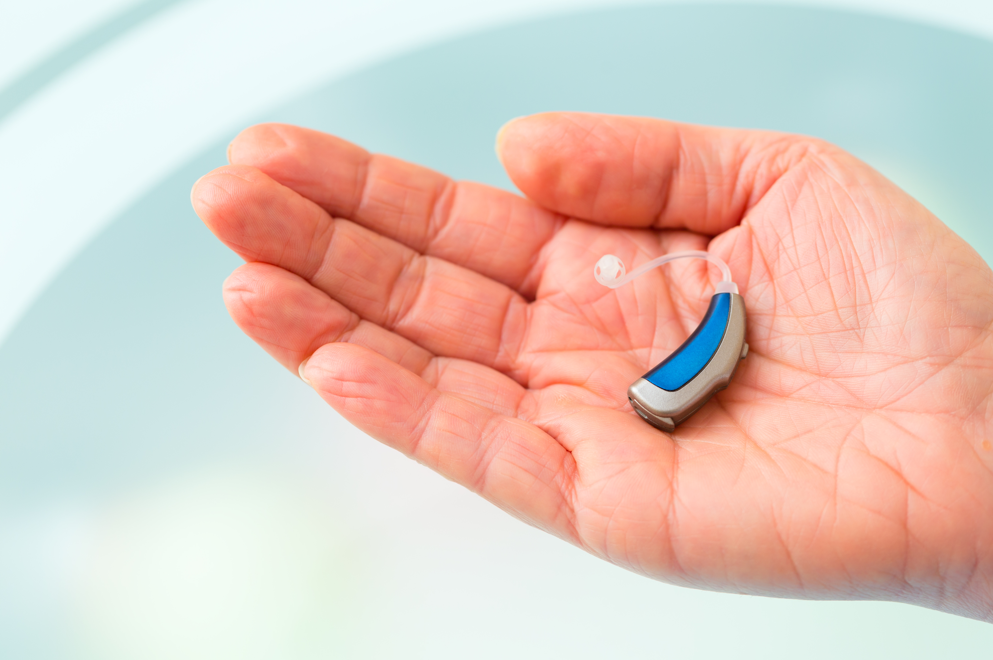A Step-By-Step Guide to Hearing Aid Fittings
Hearing loss can be a challenge, but finding the right hearing aid to fit

By: admin | May 13, 2020
Many people are unaware of the fact that there are a number of different forms of hearing loss. In general, there are three different forms of hearing loss – conductive, sensorineural and mixed. In this post, we are going to delve deeper into sensory hearing loss. Sensorineural hearing loss is the most common type of hearing loss. It impacts around every nine in ten people who have some form of hearing loss.
Therefore, when it comes to hearing loss treatment, it is certainly advisable to make sure you get in touch with an experienced audiologist who will be able to evaluate your hearing loss, enabling them to find the right device for your hearing needs. A lot of people think that with sensorineural hearing loss, hearing devices are not helpful. However, this is not true.
There are numerous different types of hearing devices out there, which cater to various types of hearing loss. It is all about locating the right hearing aid that is going to give you the best possible results based on your specific condition. So, below, we will delve deeper into this form of hearing loss, including information on how it is caused, as well as how an audiologist can help you to get the right assistance and device for your requirements.
Before we take a look at the impact of moderate sensory hearing loss, it is important to establish how this sort of hearing loss is caused. There are a number of different ways in which moderate sensory hearing loss can be caused. However, the cases can be split into two parts, either acquired or congenital moderate sensory hearing loss. When it comes to acquired moderate sensory hearing loss, this refers to the sort of hearing loss that a person develops after they have been born, typically later on in their life.
On the other hand, congenital moderate sensory hearing loss happens when the child is born with hearing loss. There are several infectious diseases that can result in this, with the mother passing on the illness to the baby while pregnant, for instance, prematurity, maternal diabetes, lack of oxygen during birth, genetics and rubella.
When it comes to acquired moderate sensory hearing loss, there are a number of different causes. This includes aging, infections, disease and head or acoustic trauma. Hearing loss that has been caused by noise exposure also falls into this category. This is something that an individual can experience when they are exposed to loud sounds, for example, this could either be one loud sound or it could be when a person is exposed to loud sounds, over 85 decibels, for an extended time period.
When it comes to moderate sensory hearing loss, it can impact people in a number of different ways. It impacts a person when it comes to the loudness of sounds, as well as the clarity of them. You might also discover that you find a lower range of sounds comfortable. This means that you will typically be found loud sounds feel too loud very quickly, as well as finding that soft and normal sounds are often too soft.
When it comes to older people that have age related sensory hearing loss, they tend to encounter high-frequency hearing loss. This will often result in them not having as much ability to hear high-pitched sounds. If this is something you feel that you may have, the best thing to do is make contact with an audiologist as soon as possible. They will be able to assess your current hearing capacity, and they will then be able to make their recommendations regarding the best devices for this form of moderate sensory hearing loss.
Contact Salyer Hearing Center for more information
If you are experiencing moderate sensory hearing loss and you feel that you need professional assistance, it is important to get in touch with a reputable audiologist today. This is something that Salyer Hearing Center can assist with. We have many years of experience in the industry, and we can help to make sure that you end up with the right device for your hearing requirements. For more information, please do not hesitate to get in touch with one of our contact numbers at…

Hearing loss can be a challenge, but finding the right hearing aid to fit
By: admin | March 26, 2024

Have you ever considered the role hearing plays in your daily life? From
By: admin | December 28, 2023

Hearing aids play a major role in the treatment and management of hearing
By: admin | November 25, 2023
We are proud to serve the people of Western North Carolina with industry leading technologies in our three locations across the region: Candler, Sylva, Franklin and Murphy. Call us and join our family for a lifetime of better hearing.
